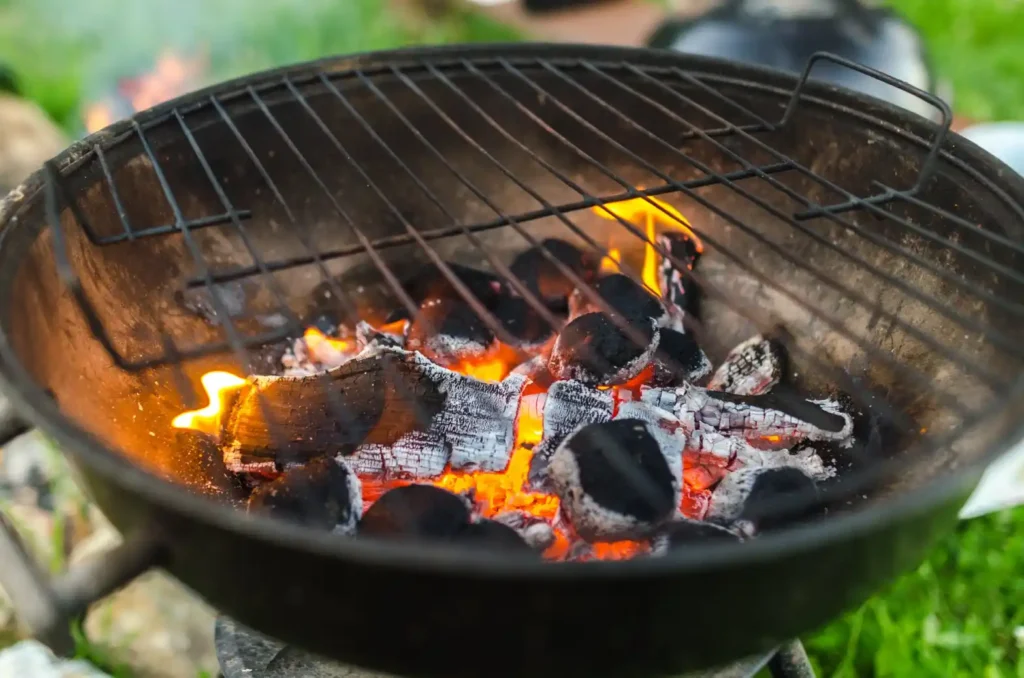Charcoal briquettes are an iconic symbol of outdoor grilling, cherished for their consistency, convenience, and the distinctive smoky flavor they impart to food. Their history, technological evolution, and the role they play in modern grilling culture reflect both innovation and tradition.
The origins of charcoal briquettes can be traced back to the early 20th century, a period when industrialization was transforming many aspects of daily life. In 1921, Henry Ford, the founder of the Ford Motor Company, found himself facing a unique challenge: dealing with the wood scraps left over from his car manufacturing operations. Ford, known for his inventive spirit, turned this challenge into an opportunity by developing a new product. He utilized the wood byproducts to create a uniform and efficient grilling fuel.
Ford’s innovation involved compressing charcoal dust and wood byproducts into uniform blocks, a more practical alternative to traditional lump charcoal. Unlike lump charcoal, which varied in size and shape and can burn unevenly, briquettes offered a standardized and predictable performance. This development not only simplified the grilling process but also made it more accessible to a broader audience. Ford’s creation was marketed under the name “Kingsford,” which remains a leading brand in the charcoal industry to this day.
The production of charcoal briquettes involves several steps. Initially, charcoal dust—resulting from the charcoal-making process—is mixed with binders such as starch or sawdust. These binders help hold the briquettes together and ensure they burn consistently. The mixture is then formed into the familiar briquette shape using a hydraulic press and allowed to dry. Some premium brands have moved towards using natural binders and avoiding chemical additives, catering to consumers who prioritize a more natural grilling experience.
One of the most significant advantages of charcoal briquettes is their ability to provide a steady, controlled heat source. The uniform shape and composition of briquettes ensure an even burn, which is crucial for achieving consistent results. This reliability makes them particularly favored among both amateur grillers and professional chefs. The even heat distribution allows for precise control over cooking temperatures, making it easier to sear meats to perfection and maintain consistent cooking conditions.

The distinctive smoky flavor imparted by charcoal briquettes is another key reason for their enduring popularity. As the briquettes burn, they release aromatic compounds that infuse the food with a rich, smoky taste. This flavor profile is often associated with traditional barbecuing and is a significant factor in the appeal of outdoor grilling. Despite the rise of gas and electric grills, which offer convenience and precise temperature control, many grill enthusiasts continue to prefer charcoal briquettes for the unique flavor and grilling experience they provide.
However, the use of charcoal briquettes is not without its challenges. The production process and the additives used in some briquettes can raise environmental and health concerns. Some contain chemical accelerants that can produce undesirable fumes or affect the flavor of the food. In response to these concerns, there has been a growing trend towards eco-friendly and natural briquette options. These alternatives aim to minimize the use of chemicals and promote more sustainable grilling practices. In addition to their practical benefits, charcoal briquettes hold a special place in grilling culture. The ritual of lighting the briquettes, waiting for them to reach the perfect ashen glow, and then using them to cook a meal is a cherished tradition for many outdoor cooking enthusiasts. This process not only adds an element of anticipation but also connects grillers with a time-honored method of preparing food.
In summary, charcoal briquettes are more than just a fuel source; they represent a blend of innovation, tradition, and culinary artistry. From their inception in Henry Ford’s factories to their role in contemporary grilling, they continue to offer a reliable and flavorful cooking experience. The legacy of charcoal briquettes is a testament to the enduring appeal of traditional grilling methods and the pursuit of that perfect smoky flavor.

